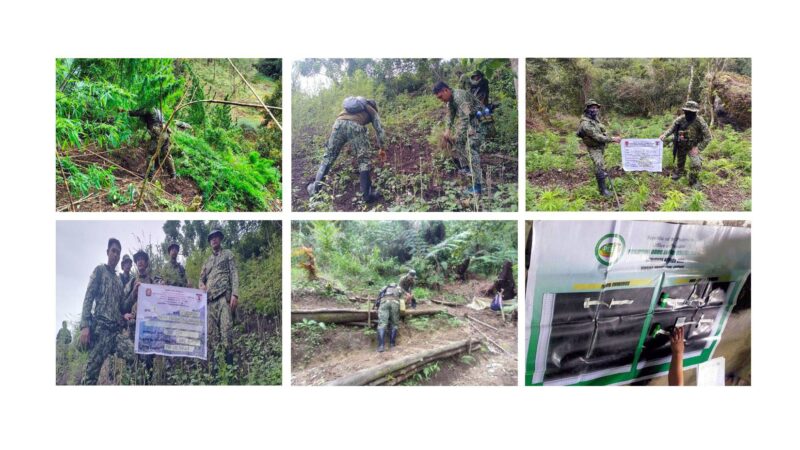NTF – BCDA set for ACT in Kalinga on Feb. 18-20
By Carlito C. Dar
BAGUIO CITY, Feb. 11 (PIA) – – The National Task Force and Bases Conversion Development Authority through the Cordillera Regional Task Force COVID – 19 will bring their Aggressive Community Testing (ACT) services in Kalinga this February 18 – 20 as part of the government’s PDITR (Protect, Detect, Isolate, Treat and Reintegrate) strategy.
Department of Health Center for Health and Development-Cordillera (DOH – CAR) Regional Director Dr. Ruby Constantino reported that the conduct of ACT in Kalinga is to help address the rise in new confirmed cases in the province mostly in Tabuk City and the municipalities of Lubuagan, Pasil and Tinglayan.
Based on DOH – CAR February 9 data, Kalinga is currently under “moderate risk” level with 816 cases recorded in the last four weeks (Jan. 12 – Feb. 8) and though the province has a negative 19 2 – Week Growth Rate (2WGR) as cases decreased from 450 in Jan.12 – 25 to 366 cases from Jan. 26 – Feb. 8, the Average Daily Attack Rate (ADAR) is still at high risk with 11.8 per 100,000 population.
Per municipality, Lubuagan, Pasil and Tabuk City are at high epidemic level; Balbalan, Tanudan and Tinglayan are under moderate risk, while Pinukpuk and Rizal are under low risk.
Constantino reminds the people of Kalinga to strictly adhere to the minimum health standards to protect themselves. Per initial assessment, most of the new cases are contact traced from previous cases. Breaches in safety protocols such as wearing of face mask, physical distancing, and mass gatherings as well as free movement of people and very relaxed border control were also monitored.
Cordillera RTF COVID – 19 Chairperson and Office of Civil Defense Regional Director Albert Mogol said they have agreed with DOH that contact tracing in Kalinga will be up to third level of contacts of the confirmed positive case for more effective and immediate control of further infections or clustering of cases.
Mogol shared that the recent conduct of ACT in Mountain Province particularly in the capital town of Bontoc was proven to be effective in infection control and prevention. (JDP/CCD-PIA CAR)







